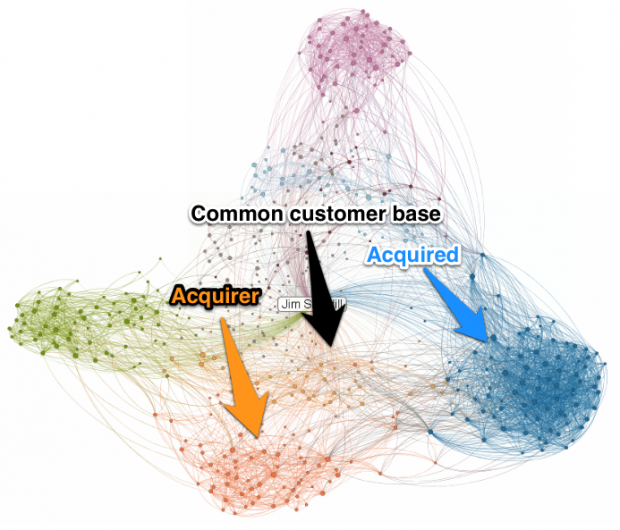I finally got around to looking at my personal network graph on Linkedin Labs the other day. It was a fun exercise and I got at least one interesting insight from it.
Take a look at these two well defined and distinct clusters in my graph. These are my connections with the startup I worked for (blue) and the company that acquired us in 2008 (orange). It is fascinating to me that all these years later the clusters remain so disconnected. There are shared connections within a common customer base, but very few direct connections across the clusters. I would love to see maps from some of my other colleagues who are still there to see if theirs show the same degree of separation. This was an acquisition that never really seemed to click and whether this is a picture of cause or effect, it maps to my experiences living in it.

That’s an aside though. What this graph really puts in stark relief is what every social network out there is learning about us. And this graph doesn’t really tell the whole story because it doesn’t represent edge weights and types, which they also know. Social networks know who we connect with, who we interact with, and the form and strength of those interactions.
But this post isn’t a privacy rant. I know they know this stuff and so do you. What this image got me thinking about again is why social networks aren’t using this information to create for us a social experience that is more like our real world, and frankly more in tune with our human-ness. Read more…




